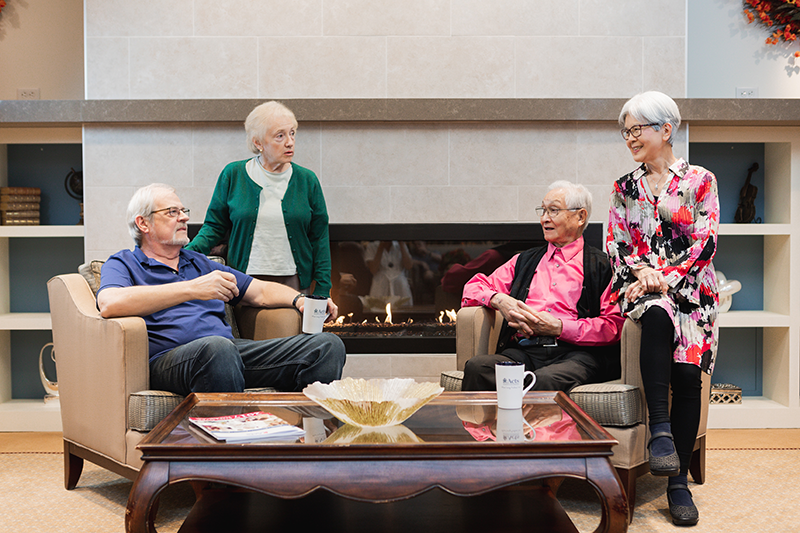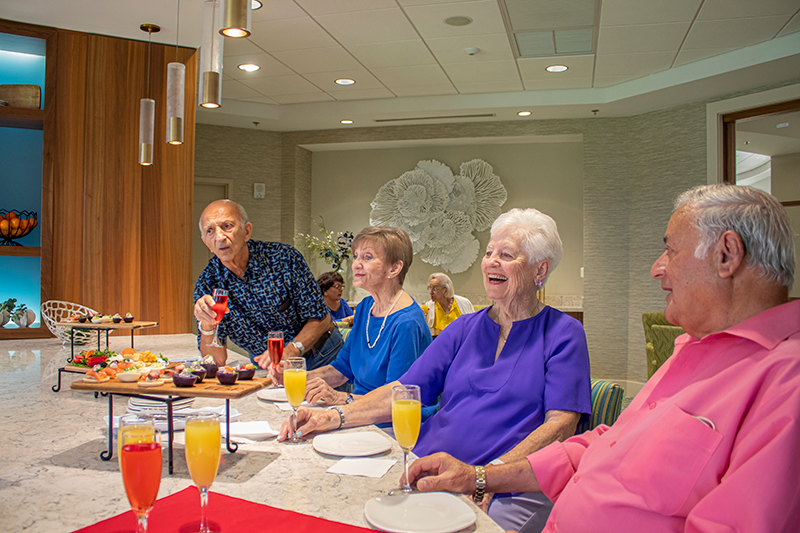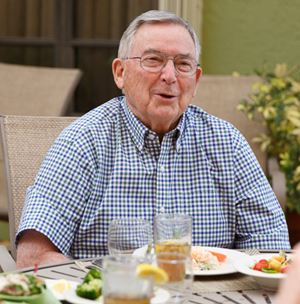Solutions for Elderly Loneliness
Loneliness is a growing problem among older adults. A recent study found that a significant percentage of all adults aged 65 and older report feeling lonely.
Loneliness can pose serious problems for the older people in our lives. If you’re a caregiver for an older adult or if you have older parents or grandparents, it’s important to know that their loneliness can have a significant impact on physical and mental health, increasing the risk of heart disease, stroke, dementia, depression, and anxiety. It can also shorten lifespan.

How to Help Reduce Loneliness in the Elderly Community
Thankfully, you don’t have to feel helpless in the face of the loneliness epidemic gripping our nation’s elderly. There are a number of solutions to help combat loneliness in the elderly community. One example is the simple act of encouraging social interaction in older adults.
- Consider volunteering in their local community, such as at a food bank or animal shelter.
- Join a club or group.
- Take continuing education classes or a pottery class or anything like that.
- Simply make a point to spend more time with friends and family, even if it’s over the phone or video chat more than in person.
Promoting physical activity is another excellent way to combat loneliness, especially its physiological components. Physical activity is a great way to improve mood and energy levels, and it can also help to reduce stress and anxiety. Likewise, encouraging healthy eating habits will also boost someone’s mood. The improvements to overall health and well-being can’t be discounted.
Finding ways to reduce stress and anxiety in older adults is an additional goal worthy of pursuit. This can include encouraging restful sleep, as it’s essential for physical and mental health while also reducing physical and emotional stress.
Finally, seeking professional help if necessary is always beneficial. If an older adult is struggling with loneliness, it is important to seek professional help. A therapist can help to understand the root of their loneliness and develop strategies for coping with it.
Other Solutions on How You Can Help Reduce Loneliness in the Elderly Community
Whether you’re a caregiver for an older person or their adult child or grandchild, you obviously care about them and want them to enjoy a happy, healthy life. There’s plenty that you can do to help, even though it may be akin to simply leading a horse to water in some circumstances. Here are some other solutions on how to help reduce loneliness amongst the elderly community:
- Rely on friends and family. Many older adults feel socially isolated, especially after retirement, as they don’t have the same everyday opportunities for social interaction as they used to. Encourage them to reach out to friends and family and be sure to spend time with them when you’re able to.
- Get them involved in community events. You can encourage an older adult to become involved in the community to help rebuild and support opportunities for social interaction. Volunteering for charitable organizations or events is one method, as is joining recreational clubs or taking classes. All of these offer great ways to meet new people and make friends.
- Encourage proper healthcare. Make sure they’re getting any healthcare they need. This can be as simple as ensuring they make it to their regular doctor appointments to ensuring they receive whatever care they might require depending on their health.
- Take care of yourself. If you’re providing any level of caregiving to an older adult, either professionally or as a family member, be sure to take some time for yourself. You can’t be there for them if you’re burnt out and struggling as well. Many of the same pieces of advice, such as getting enough rest, eating well, and being active, can be applied to you as much as can be applied to the senior you’re providing care for.

The Role a Retirement Community Can Play
How to help reduce loneliness in the elderly community can be a challenge, which is why it’s always a good idea to enlist the help of others if you’re concerned an older adult in your care is struggling with social isolation. One of the best resources for preventing the negative effects of loneliness in older adults is undoubtedly the modern retirement community. This is because of the sheer number of amenities and opportunities these communities offer.
Retirement communities are designed to provide countless avenues for socialization for their residents. Regular events and programs like art classes, access to fitness centers with personal trainers, and areas dedicated to game rooms provide ample opportunities to make friends and enjoy the company of other older adults together. Consider also walking trails, opportunity to grow a community garden, and more.
Additionally, the healthcare options at retirement communities, especially continuing care retirement communities, can help keep residents happier and healthier throughout their stay.

Helping Older Adults Cope with Loneliness
Caring for an older adult can be a full-time job to be sure, especially while you’re also worried that the older adult in your care is suffering from feelings of loneliness. These feelings can stem from dozens of different sources, but the end result is the same: a diminished quality of life that can have a negative impact on that individual’s ability to enjoy retirement. In the most extreme cases, loneliness can even lead to physical and emotional issues that could cause long-lasting harm.
Loneliness is a common problem, but it’s one that can be overcome. By encouraging older adults to take steps to connect with others and build social support, you can help them improve their quality of life and live happier, healthier, and more fulfilling lives during their retirement years. Do your best to be there for the older adult in your life by spending time with them when you can, and by helping them to find solutions to combat loneliness in the elderly community, for when you’re unable to be with them personally.





